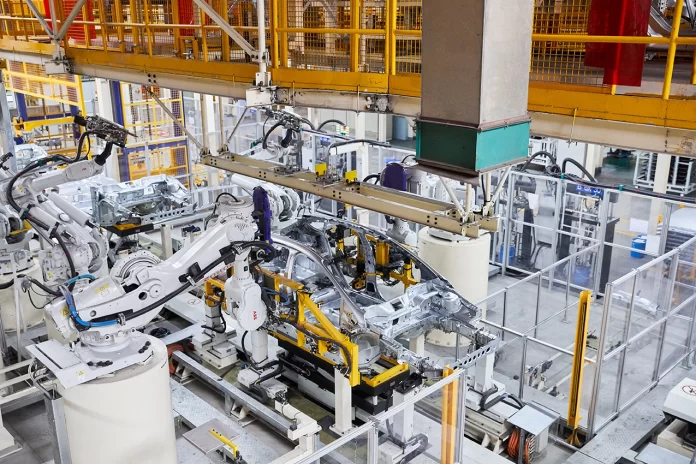Electric vehicles are becoming increasingly prevalent, with more and more models being introduced on roads worldwide. Notwithstanding this, only 39% of participants in a recent industry survey believe that electric cars will dominate the automotive sector by 2040. The shift towards electric vehicles is part of a wider trend towards achieving climate goals, with countries such as the US mandating that half of all new vehicles sold by 2030 must have zero emissions. Similarly, some European nations have set 2040 as the deadline for fossil-fueled cars.
According to a recent survey commissioned by ABB Robotics and Automotive Manufacturing Solutions, more than half of global automotive industry professionals who participated in the survey believe that current regulatory timelines for electric vehicle (EV) adoption targets are unachievable.
The survey involved close to 600 industry experts, including vehicle manufacturers and suppliers at various levels of management, engineering and other key professionals throughout the automotive world.
The survey, which polled automotive industry professionals from North America, Europe, and Asia, also revealed that more than half (59%) of respondents believe that the shift to pure electric vehicle production is not achievable within current legislative timelines. While 28% of respondents believed that the deadlines for electric vehicle adoption were achievable, they also indicated that there would be significant challenges. Only 11% of respondents believed that all regional targets for electric vehicle adoption by 2030-2040 were realistic.
Respondents cited challenges such as adapting to a new battery supply chain, high levels of capital investment required, shortages of raw materials, lack of infrastructure, and lack of grid capacity as major barriers to achieving the transition to electric vehicles.
Among the key concerns highlighted by respondents was the challenge of adapting to a new battery supply chain, with 19% citing this as a key barrier. Additionally, 16% of respondents expressed concern over the high levels of capital investment required for EV production. Shortages of raw materials, suitable infrastructure and lack of grid capacity were also identified as major issues yet to be resolved.
Joerg Reger, Managing Director of ABB Robotics Automotive Business Line, emphasized the importance of automation in making production more resilient, efficient, and faster to meet these targets. Automation is key to making production more resilient, efficient, and faster to meet these targets, which is why we’re seeing high demand for our robots that specialize in EV powertrain assembly,” he said.
“The survey confirms the automotive industry challenges – that manufacturing is under strain and disrupted supply chains are under considerable stress,” said Daniel Harrison, Automotive Analyst at Automotive Manufacturing Solutions.
“This is likely to be the ‘new never normal’, which poses considerable challenges to how quickly the industry can transition to electrification and also wider manufacturing sustainability targets, especially during a period of great economic uncertainty. Furthermore, within that context, challenges remain in the availability and cost of labor and how quickly large workforces can be reskilled.”
Sustainable manufacturing, a more positive outlook
When questioned about delivering sustainable manufacturing, industry leaders were more positive, with 80% predicting sustainability is achievable. Only 4% felt it would not be possible.
Of those surveyed, only those in America (16%) felt that regulatory compliance was a key obstacle (compared to 7% in Europe and just 5% in Asia). However, almost a quarter (24%) of all respondents suggested that the high capital expenditure required was the primary challenge to achieving sustainable manufacturing. With robots becoming increasingly easier to access, integrate and use – particularly with developments in collaborative robots and software like ABB’s RobotStudio, which makes planning and programming faster and more efficient – automation will be the key enabler in the delivery of sustainable manufacturing.
The ABB survey includes close to 600 global industry experts, from vehicle manufacturers, and supplies at all levels of management, engineering and other key professionals throughout the automotive world.
Read more and download the ABB & AMS Automotive Manufacturing Outlook Survey and infographics here


